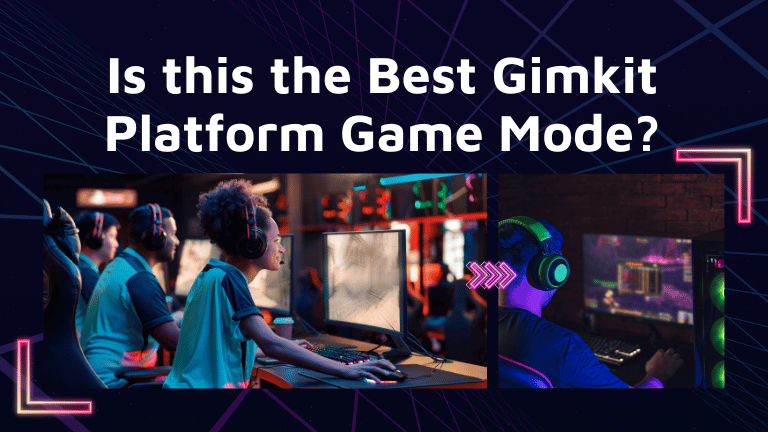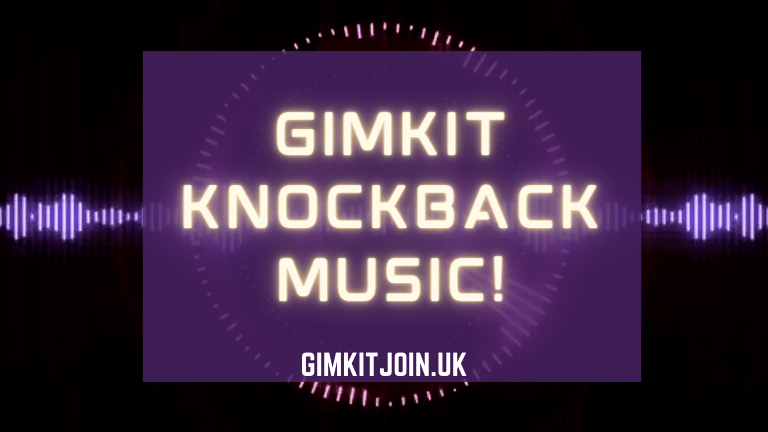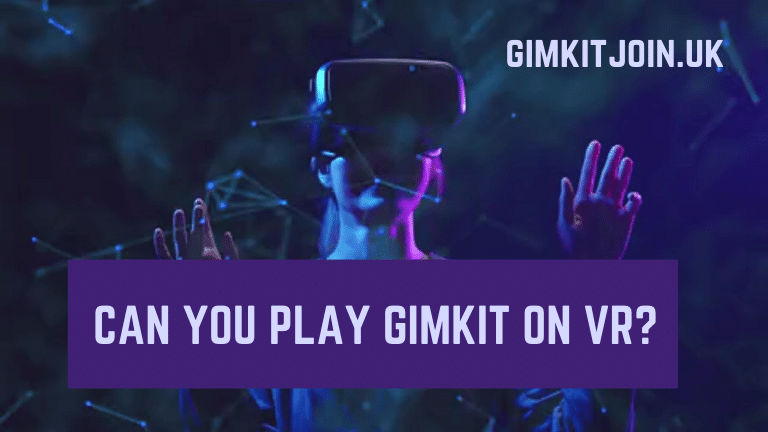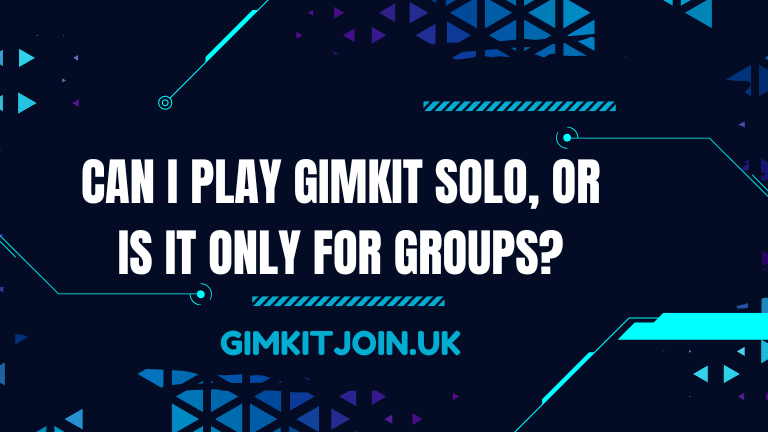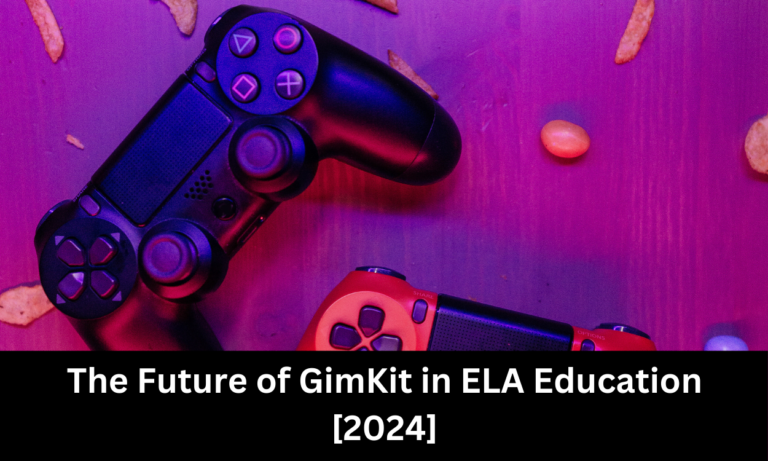Top 5 games like gimkit and blooket [2024]
Top 5 games like gimkit and blooket 2024 Gimkit and Blooket have become wildly popular as gamified quiz platforms for students reviewing academic content. With flashy themes, multiplayer battles, and reward systems that appeal to young learners, these study aids gamify subject mastery in an entertaining way.
But with so many hours invested conquering Gimkit leaderboards and completing Blooket sets, some students yearn for something fresh. And teachers may want to experiment integrating new pedagogical games without overhauling existing curriculum balances.
Thankfully, a range of emerging edtech apps provide original gaming twists while teaching vital knowledge just like those household names. These engaging alternatives help both students and educators continue an exciting gamified lesson journey beyond familiar go-to staples.
After analyzing over two dozen contenders, here are 5 of the best games like Gimkit and Blooket when seeking another fun & educational option:
1. Quizziz
Topping the list is Quizziz – a “game show in your classroom” that mirrors certain gameplay formats popularized by early trendsetters while also pioneering some of its own.
Like Gimkit and Blooket, Quizziz enables playing solo or competing head-to-head against classmates. Teachers use the platform to create gamified quizzes covering material for students to study via play.
Standout alternative elements include:
- Meme Questions – Insert funny reaction meme images between questions when building quizzes. Extra engagement & humor!
- Race Mode – Answer rapidly in a set time period to beat opponents, earning points based on speed & accuracy.
- Stealth Mode – Identity hidden until the game ends for more focus on content rather than competition.
- Spectator Mode – Teachers can watch quiz progress streamed live on their screen.
For those seeking to change up review modes while retaining familiar trivia competition dynamics, Quizziz warrants first consideration.
2. Kahoot!
Veteran players surely remember classic gamified quiz pioneer Kahoot likely used by teachers since elementary school days. Though a longstanding option in edtech, updated features confirming its staying power alongside new hot shots entering the market.
Kahoot differentiates itself through:
- Group Play – Up to thousands can join an openly shared access code and play together from own devices in public competition.
- Ghost Mode – Students race against time rather than directly facing opponents. Just beat your own previous performance!
- Challenges – Contest strives to set record point totals across various timed or topical challenges.
- Rewards – Unlock badges, avatars, streak perks and more for accomplishments.
From its party music to stand up rapid fire question projection in front of whole classrooms, Kahoot delivers a nostalgic social experience not quite replicable elsewhere even today.
3. Triventy
A relative newcomer that has quickly built steam is Triventy, which brands itself as “the world’s most rewarding trivia game” through integrating trendy play-to-earn cryptocurrency rewards.
Students can earn TRIV tokens by:
- Competing correctly in matches
- Staking wagers on game outcomes
- Creating & sharing new quiz content
Beyond earning actual crypto payouts, gameplay itself centers around 3 classic mold genres optimized for engagement:
1. Trivia Deathmatches – 1 vs 1 trivia showdowns with escalating wagers.
2. Buzzer Beater – Multiple choice quiz races with cash prizes for podium finishers.
3. Conquest – Territory control head-to-head geography battles.
Mixing next generation Web3 appeal with proven popular question-based competition types cements Triventy’s unique appeal compared to alternatives.
4. Scholarship Forkids
Adding diversity to list with a specialized niche focus, Scholarship Forkids markets itself as the “edutainment platform designed to fund futures”.
Unlike generic trivia titles, all content trains vital skills needed for students to earn lucrative college scholarships down road. Patterned similarly to arcade games or mobile apps, students progress through “missions” targeting core areas like:
- Standardized Testing
- Math & Logic
- Reading Comprehension
- Typing & Data Entry
- Memory & Retention
With escalating challenges to climb leaderboards plus monetary rewards at stake in contests, Scholarship Forkids gamifies otherwise dull test prep into enjoyable daily habits advancing real world futures.
5. StudyTopia
Last to highlight is StudyTopia – an academic reinforcement toolbox integrating multiple learn-by-play formats ranging from traditional quiz games to more experimental creative modes.
Core option types include:
Flashcards – Digital interactive flashcard decks covering expansive content collections.
Quizzes – Customizable tests with multiple choice, written, matching, sorting, image, and more.
Creative – Alternative gameplay modes spurring outside the box application like Ideamap, Pairs Check, and Expert Says.
With questions sourcing automatically from broader study materials rather than requiring manual creation, StudyTopia expedites educators designing engaging curriculum gamification completely customized to current lesson goals.
Game Features Comparison Chart
| Quizziz | Kahoot | Triventy | Scholarship Forkids | StudyTopia | |
|---|---|---|---|---|---|
| Solo Play | Yes | No | Yes | Yes | Yes |
| Multiplayer | Yes | Yes | Yes | Yes | Yes |
| PvE Mode | Yes | Yes | No | No | No |
| PvP Mode | Yes | Yes | Yes | Yes | No |
| Custom Content | No | Yes | Yes | No | Yes |
| Pre-Built Content | Yes | No | Yes | Yes | Yes |
| Rewards/Prizes | No | Yes | Yes | Yes | No |
| Teacher Support | Yes | Yes | Limited | Yes | Yes |
Implementing Fresh Games In The Classroom
When seeking alternatives to established favorites Gimkit or Blooket for gamified lessons, simply swapping one pure trivia quiz platform for a comparable doppelganger likely only yields temporary renewed interest before students again get accustomed to the familiar format.
Maximum engagement sustains when adding an entirely new style of edutainment diverging from expected test taking norms. For example, shifting from competitive exam reviews towards more creativity stimulating modes emphasizing applied knowledge or retention streak building.
Rotating a fresh game like those profiled here into the activity routine every few weeks keeps anticipation high. Compared to daily reliance on just a singular go-to application, sprinkling in variation utilizing multiple game types retains that exciting novelty effect students crave.
And exploring new waters simultaneously gives teachers valuable perspective on which game features best resonate with different classes to inform future curriculum decisions. Gathering experimental performance data from alternate games allows optimizing engagement recipes tailored to specific groups. Much like gamers themselves, educators play the field to pinpoint exactly which titles unlock their students’ learning passions!
Compartmentalized Tips For Mastering Top Classroom Game Alternatives
In the first section, we provided broad overviews of 5 excellent game options to mix into classroom learning rotations alongside beloved staples like Gimkit and Blooket.
Now let’s explore more compartmentalized tips to excel specifically within each app through understanding their unique format nuances. Consider these the insider tricks used by teachers and top performing students to get a gamified education edge.
Conquering Quizziz
With Quizziz, customizing tests for your class population and goals is instrumental. Their question library leaves much to be desired for tailored needs. Build your own quizzes covering current material:
Balanced Length – 8-15 questions offers enough range for meaningful assessment without dragging on too long causing disengagement.
Limit Written – Max out at 20-30% written entry questions. Quick multiple choice majority works better for play environs.
Humor Helps – Insert meme images between questions whenever logically possible to elicit smiles.
Name That Tune – Upload instrumental theme songs from movies/games as students enter quiz name to set fun mood.
Analytics Review – Study reports after quiz completion to identify specific weak areas needing focus for different students.
Kahoot Controller Skills
As the classic game show style platform of the bunch, managing Kahoot efficiently is vital for teachers. Refine facilitation and projection skills for smooth gameplay:
Clear Projection Setups – Position main screen visibly to entire class and test audio works properly before starting.
Simplify Joining – Pre-make easy 4 digit game pin codes rather than system generating chaotic 9 digit versions.
Set The Scene – Dim lights, queue up sound effects, speak enthusiastically as if a game show host to set showtime tone.
Time Control – Master pace by quickly prompting next questions, not too fast or slow. Keep all engaged.
Replay Best Rounds – After game finishes, replay and breakdown highest scoring timestamp replays as a group for feedback.
Triventy Pro Tips
As a crypto platform with play-to-earn elements, using Triventy effectively involves understanding both knowledge gaming and financial strategy.
Staking Science – Conservative betting protects bankrolls during hot streaks. Aggressive with house money after big wins to maximize profits.
Question Previews – Got 20 seconds before choosing an opponent? Quickly scan the question preview list to target weaker subjects for them.
Grinding > Risking – Unless large bankroll already secured, consistent modest match profits grind over risky all-in gambles.
META Masters – Learn global player strengths and weaknesses based on flags to inform betting decisions pre-match.
Peer Review – Discuss quiz quality in Discord groups to find which player created sets best suit your studying needs.
Scholarship Arcade Unlocks
With Scholarship Forkid’s niche academic focus, tailor gameplay towards long term knowledge development over short term scoreboard rankings.
Needs Analysis – Take practice tests first to diagnose weakest SAT/ACT sections. Train those specific missions.
Balanced Diet – Blend drilling weaknesses with maintaining strengths for steady holistic improvement curve.
Spaced Repetition – Use memory trainer mini games as morning warm up exercises to prime recall circuits for priming.
Accuracy > Speed – Getting questions right still nets coins even if slower rather than reckless race pace leading to more mistakes.
Scholarship SIMS – Embrace role playing a future self already earning scholarship prizes to shift identity towards that reality.
StudyTopia Achievement Hunting
With customizable playlists across various games, curate content wisely in StudyTopia. Seek diversity blending knowledge quizzing with applied retention exercises.
Diagnose Deficiencies – Start each new unit by taking a conventional test to pinpoint exact areas that require focus.
Patched Knowledge – Address those deficiencies through targeted flash cards, then apply learnings through creative simulators.
Streak Building – Conclude units tracking longer term memory decay through staggered re-quizzing days/weeks later before moving to next unit.
Teacher’s Pet – Earn bonus experience points by contributing user generated quiz and flash card assets to the community.
Badge Hunting – Compare badges earned versus peers to fulfill innate human desire for status and belonging through positive competition.
Parting Words of Wisdom
As we prepare to close this lengthy guidebook aiming to optimally integrate classroom gaming for enhanced education, several big picture philosophies warrant re-emphasizing:
Games Are Supplemental
While research shows edutainment apps can positively reinforce lessons when applied deliberately, gaming remains supplemental to core instruction rather than a crutchreplacing teaching duties. Balance screen time with heavier offline lifting.
Variety Maximizes Impact
The worst outcome is students mindlessly grinding the same game out of familiarity complacency rather than enriching intellectual horizons. Maintain freshness rotating diverse options.
Curation Overloads Prevention
Each game platform contains exponentially more game mode permutations or quiz content than any one student could exhaust. Carefully curate the highest quality experiences fitting current lessons rather than overloading with excessive volume margins.
Assess Over Assumptions
Resist assumptions on student comprehension based on gaming performance. Frequently test understanding offline without assistance of multiple choice hints revealing answers. Gamification offers engagement assisting recall rather than guaranteeing skill mastery.
Not One-Size-Fits-All
While game-based learning broadly appeals more than conventional studying for most, some students still concentrate best solo with traditional practices. Adapt formats catering to unique learner needs within reasonable thresholds.
Journey Over Destination
Sustained curiosity cultivation separates short-term knowledge regurgitators from lifelong intellectual adventurers. Keep unlocking academic achievements not for the answers themselves, but for the joyful search towards higher wisdom that gaming facilitates.
Now go explore new kingdoms of learning before the school bell rings! This classroom questing guide signing off…
Final Arcade Upkeep For Teachers
At the end of the day, successfully operating a dynamic classroom arcade shuffling various knowledge gaming titles comes down to masterful logistical coordination and quality content creation from the teacher.
Regardless of the platform itself, thoughtfully designed questions personalized to current curriculum produces far better engagement than generic randomly crowdsourced materials. Take time curating quizzes even for games touting ease of use.
Additionally, given limited classroom hours, carefully scheduling a variety of activities to avoid overemphasis on just games remains important too for comprehensive development. Strike balances between gaming, traditional practice, group discussions, and offline creative pursuits.
Like most elements of effective teaching, integrating edutainment games while managing trade offs and keeping students focused on actual learning rather than simply competing constitutes more an art than science. Observe what inspires and capture magic!
Now class, lessons are complete for today – we’ve covered many games, but time to put controllers down. Go enjoy some fresh air outside before homework! This is your teacher signing off…
Final Takeaways For Arcade-Style Academic Alternatives
While Gimkit and Blooket clearly still reign amongst the education gaming elite and warrant their praised status, venturing out to experiment with additional options like Quizziz, Kahoot, Triventy, Scholarship Forkids or StudyTopia between review sessions keeps learner motivation sky high.
Treat the classroom like a gaming arcade! Rotate diverse games in and out of the mix with balanced frequency to retain that compelling spark which only novel experiences provide. Sticking to just one game grows repetitive over time regardless of initial reception.
Ultimately, variety is the spice of learning! alternate between game types frequently enough so that students perpetually look forward to playing each time class goes game on rather than dreading more of the same old grind. What games have you found best liven up your lessons? Let the games begin!

FAQs
What are Gimkit and Blooket?
Gimkit and Blooket are popular educational gaming platforms designed to make learning engaging and interactive for students. They both incorporate elements of gamification into educational content, allowing teachers to create quizzes, flashcards, and other learning activities.
What makes Gimkit and Blooket stand out?
Both Gimkit and Blooket offer features such as customization options for teachers to create their own content, real-time feedback for students, and competitive gameplay mechanics.
How do these games enhance learning?
Games like Gimkit, Blooket, Quizizz, Kahoot!, Quizlet Live, Flippity, and Factile provide a fun and engaging way for students to review and reinforce academic concepts. By incorporating elements of competition, teamwork, and interactivity, these platforms motivate students to actively participate in their learning process.
What criteria should I consider when looking for similar games?
When searching for games similar to Gimkit and Blooket, consider factors like interactivity, customization options, compatibility with your subject matter, student engagement features, and ease of use for both educators and learners.
What are some games similar to Gimkit and Blooket?
Some alternatives to Gimkit and Blooket include Quizizz, Kahoot!, Quizlet Live, Flippity, and Factile. Each of these platforms offers its unique approach to gamified learning, catering to various teaching styles and subject areas.
How do these alternatives compare in terms of features?
While all these platforms share the goal of making learning enjoyable, they differ in their features. For example, Quizizz emphasizes self-paced quizzes, Kahoot! focuses on live, multiplayer quizzes, Quizlet Live promotes collaborative learning, Flippity offers versatile tools for creating educational games, and Factile specializes in jeopardy-style quiz games.
Are these alternatives free to use?
Many of these platforms offer free versions with limited features, while also providing premium subscription options for access to advanced functionalities. Be sure to explore the pricing and features of each platform to determine which best fits your budget and needs.
How can I get started with these alternatives?
Getting started is typically straightforward. Simply visit the website of the platform you’re interested in, sign up for an account (if required), explore the available features and resources, and start creating or playing games right away!
Do these games support remote learning?
Absolutely! Especially in today’s educational landscape, where remote learning is increasingly prevalent, these platforms offer features for facilitating virtual classrooms, allowing teachers to engage students from anywhere in the world.

